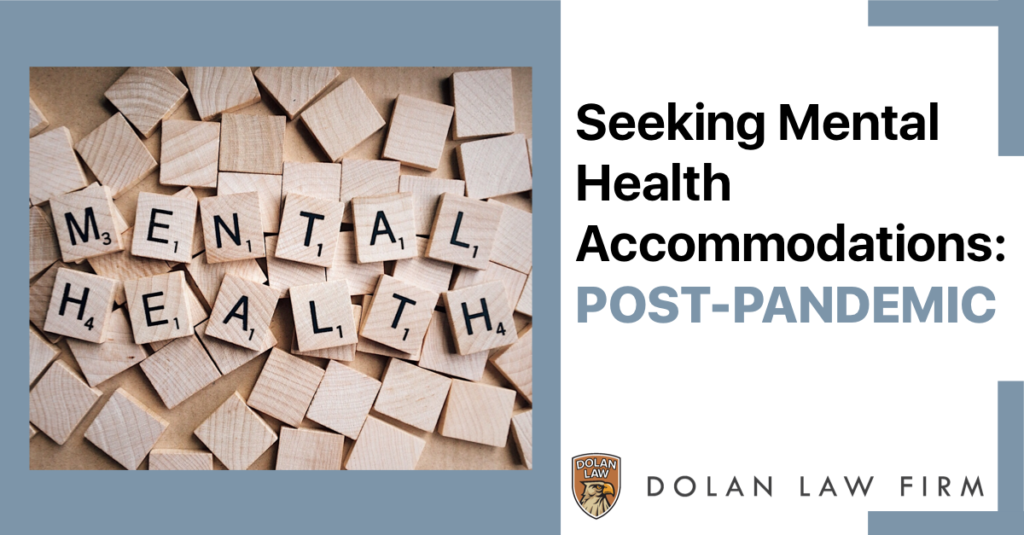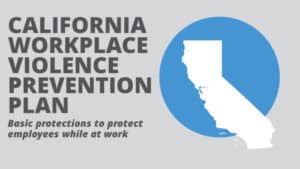Written by: Vanessa Deniston and Christopher Dolan
Lenora from California asks: Before COVID hit, I felt extremely stressed out at work and pushed to my limits emotionally, to the extent that I believed I might have an anxiety disorder. I regularly experienced panic attacks, feelings of dread and trouble concentrating, but never spoke to a medical professional about it. Unfortunately, working from home during the pandemic presented its own challenges from having anxiety around the virus itself to juggling a high-pressure job while caring for two young children attending school on Zoom. My symptoms seem to have worsened. I worry about how I will readjust once I am asked to physically return to the office and how my anxiety will affect my performance. Do I have any options that might ease my return-to-work?
Lenora, thank you for writing in about your sensitive issue. The COVID-19 pandemic can certainly be described as a global traumatic event, that has created unique stresses on many, including the exacerbation of preexisting mental health conditions. This is particularly acute with working mothers such as yourself who struggle with their mental health.
It is important to first understand that the general stress and anxiety we all feel from time to time regarding work, family life and yes, even the pandemic, does not constitute a disability under California law. Anxiety disorders, depression and related mental health conditions, however, can constitute disabilities under the law. If your employer employs five or more persons and if you are found to be qualified person with a disability under the Fair Employment and Housing Act (Cal. Gov. Code § 12900) you are entitled to reasonable workplace accommodations to help you perform you job. To be a “qualified person with a disability” you must meet the skill, experience, education and job-related requirements and be able to perform the essential functions of your job with or without a reasonable accommodation.
If you are found to have a mental health condition that effects your ability to perform your essential job functions, it is important to place your employer on notice as soon as possible if you wish to explore workplace accommodation options. Any notice and request for a workplace accommodation should in writing, when possible.
Once an employer receives the notice, the California Fair Employment and Housing Act requires the employer to engage in an interactive process with the employee to explore reasonable accommodations that would assist the employee in performing the essential functions of their job. The key word there is reasonable. What is considered reasonable? After the year we’ve just had, the answer to that question is not as clear as it once was.
The most evident shift is the work-from-home arrangement. Statewide regulations surrounding the COVID-19 pandemic, have essentially forced the hand of employers to experiment with work-from-home arrangements. Some businesses floundered, some thrived and others simply course corrected. Every job environment is unique, and every employer has had to adapt to the pandemic in its own unique way. While working-from-home accommodations may have been an unfeasible in early 2020, they may now be considered a more reasonable option if an employer was able to successfully adopt a work-from-home business model. Work-from-home options post-pandemic will not be feasible for all businesses, however, and you should not assume a work from home accommodation is necessarily reasonable one. An employer cannot be forced to extend accommodations that would cause their business to suffer undue harm or significantly disrupt their operations.
While working from home part or full time might be an option for you, reasonable accommodations can take many other forms. It may take experimenting with different reasonable accommodations before you and your employer settles on one or more that work best for both of you. Common accommodations for mental health disabilities may include flexible scheduling, intermittent leave for the employee to attend health appointments, frequent breaks, removal of distractions, a task reminder system, and/or a quieter work environment. While you can suggest reasonable accommodations unique to your situation during the interactive process, employers are not obligated to grant every accommodation you might propose. It can often be more difficult to find a workplace accommodation that works for both the employer and the employee when dealing with a mental health disability as compared to a physical disability, so it is important to stay flexible and open-minded when engaging in the interactive process.
It is also important to know, that while they may not elect to do so, your employer has a right to request medical authorization from your healthcare provider, which should indicate what medical restrictions you have, if any. This will assist your employer in determining what accommodations they can or cannot reasonably accommodate. The interactive process is a two-way street and both parties must engage in good faith. If you find your employer is willfully ignoring your requests for reasonable accommodations, refusing to engage in the interactive process or creating unnecessary obstacles for you during the interactive process, contact an attorney to fully understand your rights.










